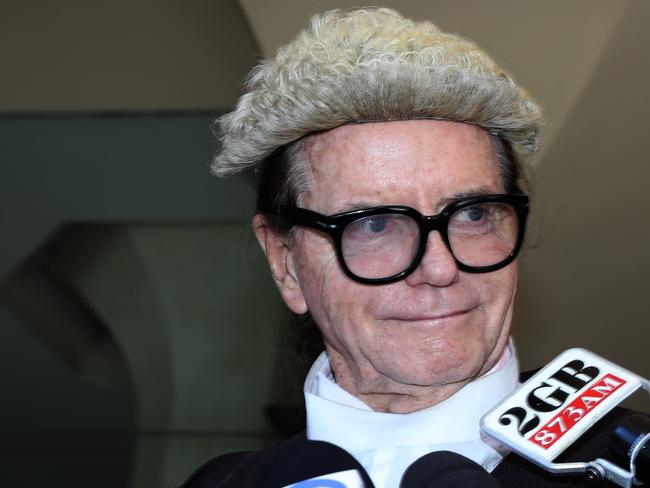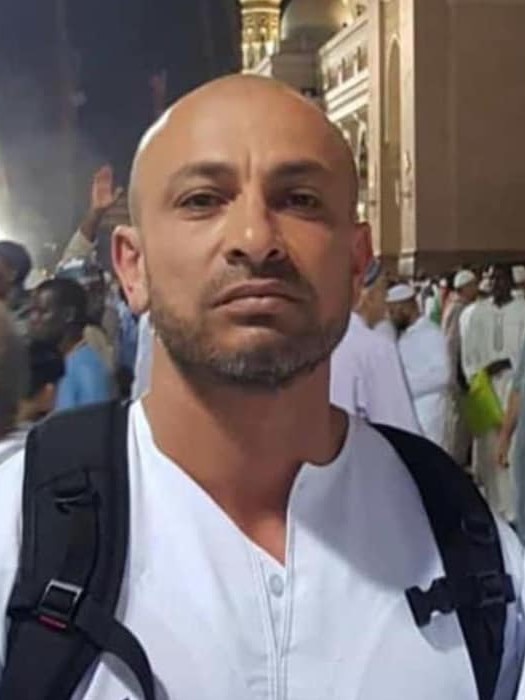The Snitch: Judge Roy Ellis’s parents almost evicted after lawyer’s con
The elderly parents of a NSW judge were almost evicted from their home after being ripped off by a lawyer who fleeced his clients of $3.2 million.
Police & Courts
Don't miss out on the headlines from Police & Courts. Followed categories will be added to My News.
The elderly parents of NSW District Court Judge Roy Ellis were ripped off by a lawyer who fleeced a number of clients for $3.2 million.
Last week we revealed the lawyer got to keep his identity a secret until at least March, after a non-publication order was continued by the NSW Supreme Court in a hearing just before Christmas.
But more details are emerging about the exploits of the lawyer, who was jailed for a maximum of eight years on December 18.

This includes that Judge Ellis’ parents were among his numerous victims.
Judge Ellis, a popular figure among the legal fraternity, was forced to step in and negotiate with an aged care facility to stop his parents from being evicted just before Christmas in 2018 thanks to the lawyer’s actions.
The elderly couple tasked the lawyer with putting the money from their house sale into a trust account before it was to be transferred to pay for their residence in an aged care facility, court documents said.
The sale took place on November 2, 2018, and by December 7 the money was paid into the lawyer’s account, the documents said. But the lawyer paid the money into an account of another of his victims to cover money stolen in a Ponzi scheme-style arrangement.
On December 14, Judge Ellis learned the lawyer’s practice had been “placed into receivership and that the entire proceeds from the sale had been dissipated”.
“He was forced to negotiate with (the retirement home) as his mother was in danger of being evicted just before Christmas,” the court heard.
IT ISN’T YOU CHARLIE
We had a significant response last week from members of the legal fraternity wanting the gossip on the identity of the jailed lawyer.

Most were batted away but temporarily (maybe) sidelined barrister Charles Waterstreet
was particularly entertaining.
“Don’t tell me the lawyer today, but is it me?” he asked after wishing The Snitch a happy new year.
Don’t worry Charlie, if it was you, we would have made a much bigger deal of it.
Asked when the documentary detailing his extraordinary life is being released, he said: “When I’m ready.”
THAT’S AN ORDER
Two major figures linked to the conflict that resulted in Bassam Hamzy’s brother being murdered have struck a deal with police when it comes to the terms of their serious crime prevention orders (SCPO).

Police began issuing the onerous SCPOs in a bid to prevent a revenge killing after the murder of powerful crime identity Mejid Hamzy, who was gunned down outside his home in October.
The killing followed an ongoing and escalating conflict between the Alameddine and Hamzy crime networks that are rooted in drug distribution.
The orders are rarely issued, and require the approval of a judge, but are useful for police in these scenarios. They severely restrict a person’s movements, from the phone they use to the company they keep and the house they live in.
On Christmas Eve, Rafat Alameddine and Mahmood Zakaria sat at the negotiating table with the police over their orders.
By the time the process was over they were banned from using encrypted communications, anyone else’s mobile phone and keeping more than $10,000 in cash.
Impromptu sleepovers and care hire are also off limits without telling the cops first.
And they have to hand over their phones to police if requested at any time of the day or night.
The men, who have not been charged in relation to Hamzy’s death, are also banned from talking to each other, the Hamzys and anyone associated with the Brothers for Life gang.
Hamzy relatives Ghassan Amoun and Ibrahem Hamze were the first to be hit with the orders.
They challenged the orders in the Supreme Court and watered down some of the police conditions.
Got a Snitch? Contact Ava.benny-morrison@news.com.au or Brenden.hills@news.com.au


